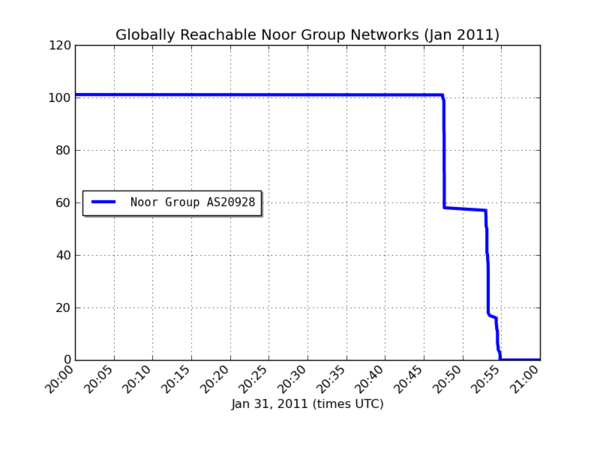I had a great commute into downtown Toronto today: unlike my usual pattern of spending 20-30 minutes inching down the Don Valley Parkway from Finch to York Mills (and then sometimes another 20-30 minutes from there to Bloor/Bayview), today’s drive was actually pleasant. There was a bit of congestion in the right-hand lanes coming south on the 404 past the Sheppard/401 exit, but other than that, I didn’t even need to downshift until just north of Eglinton.
I’m sure some of this is due to the efforts of energetic, enthusiastic news and weather folks at 680 News and other media outlets. They’ve been in full pantswetting mode for the last 24 hours, warning us about the alarming possibility of snowfall. That drumbeat of doom must have persuaded lots of drivers to avoid coming in to the looming epicentre of severe winter weather at Yonge and Bloor.
For those of you unfamiliar with Toronto weather, you probably think we experience regular snowfall, with cold temperatures and high winds (like Montreal and Winnipeg often do). If Toronto did experience things like that, we wouldn’t be able to deploy any troops to Afghanistan, because they’d all be in Toronto trying to save the city from utter panic and absolute civic collapse. Toronto doesn’t handle winter very well at all.
I thought it was just the highways, but Darkwatermuse found the same phenomenon on city streets today:
Did anybody else notice the light traffic today? I had to head uptown on the bus for a mid-day appointment and the bus cruised slowly past each empty bus stop. Stops which normally have two or three people debarking or embarking the bus.
On the way home I found myself alone on the bus, not considering the driver. If the driver’s seat had been empty I would have snapped a photo of it with my smart phone and emailed the photo to the media. Assuming I survived the crash and after the bus came to a complete stop and having shown somebody at the TTC my valid transfer.
Alone. On the Sherbourne bus. That’s like being alone in the serving line at the shelter on Christmas Eve. Strangely, a lot of those same missing people normally take the Sherbourne bus so I wasn’t too fussed being alone for once.
For once the bus didn’t smell like 3AM vomit and an ashtray overflowing with Player’s Navy Cut cigarette butts. An unlikely outcome just like snowballs in hades or, apparently, snow in Toronto.
Of course, I may have to retract all of this if the weather really does (for once) come close to the media’s hyperventilated predictions: I’m meeting another member of the VRWC (libertarian sub-committee) after work tonight, so I’ll get to experience a bit more of the joy of Toronto in snow.
Update, 2 February: As we few, bedraggled survivors claw our way out of the Massive, Unprecedented, Crippling Snowfall, the CBC offers us their support and sympathy:




